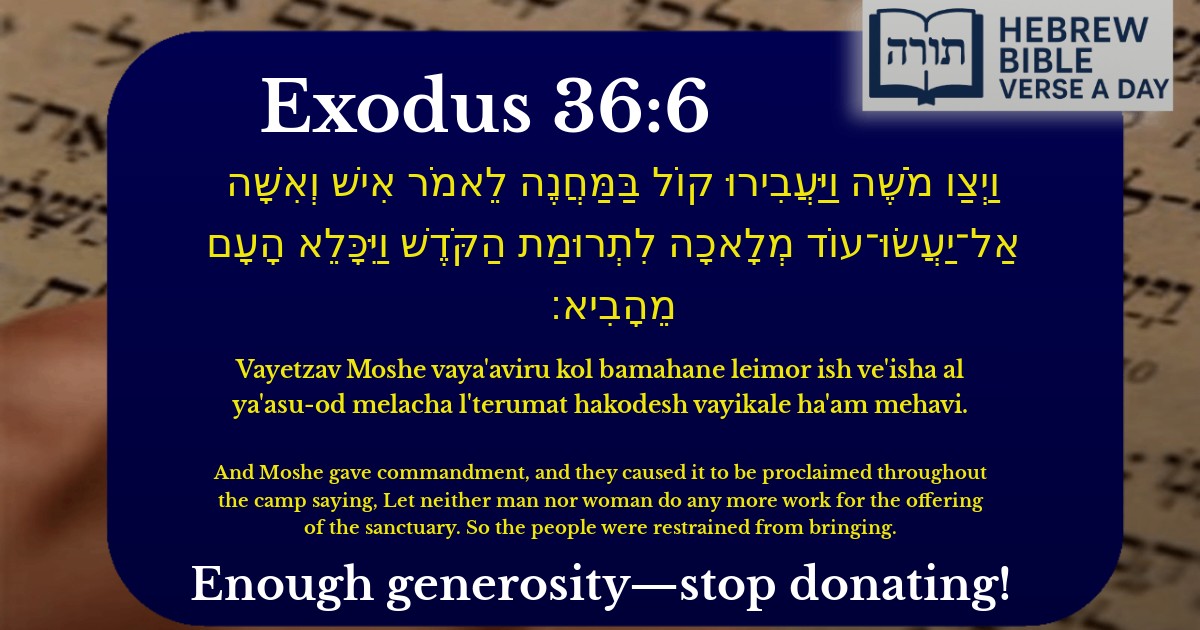Join Our Newsletter To Be Informed When New Videos Are Posted
Join the thousands of fellow Studends who rely on our videos to learn how to read the bible in Hebrew for free!
Hebrew Text
וַיְצַו מֹשֶׁה וַיַּעֲבִירוּ קוֹל בַּמַּחֲנֶה לֵאמֹר אִישׁ וְאִשָּׁה אַל־יַעֲשׂוּ־עוֹד מְלָאכָה לִתְרוּמַת הַקֹּדֶשׁ וַיִּכָּלֵא הָעָם מֵהָבִיא׃
English Translation
And Moshe gave commandment, and they caused it to be proclaimed throughout the camp saying, Let neither man nor woman do any more work for the offering of the sanctuary. So the people were restrained from bringing.
Transliteration
Vayetzav Moshe vaya'aviru kol bamahane leimor ish ve'isha al ya'asu-od melacha l'terumat hakodesh vayikale ha'am mehavi.
Hebrew Leining Text
וַיְצַ֣ו מֹשֶׁ֗ה וַיַּעֲבִ֨ירוּ ק֥וֹל בַּֽמַּחֲנֶה֮ לֵאמֹר֒ אִ֣ישׁ וְאִשָּׁ֗ה אַל־יַעֲשׂוּ־ע֛וֹד מְלָאכָ֖ה לִתְרוּמַ֣ת הַקֹּ֑דֶשׁ וַיִּכָּלֵ֥א הָעָ֖ם מֵהָבִֽיא׃
Parasha Commentary
📚 Talmud Citations
This verse is not quoted in the Talmud.


Context of the Verse
This verse (Shemot 36:6) appears during the construction of the Mishkan (Tabernacle), when Bnei Yisrael were contributing materials for its construction. The people had brought so much that Moshe had to command them to stop bringing additional donations.
Rashi's Explanation
Rashi (Shemot 36:6) explains that the phrase "וַיִּכָּלֵא הָעָם מֵהָבִיא" ("the people were restrained from bringing") indicates that the people were eager to continue contributing, but Moshe had to actively restrain them because they had already brought more than enough for the Mishkan's needs.
Midrashic Insights
Halachic Implications
The Rambam (Hilchos Beis HaBechira 1:12) derives from this verse that once the necessary materials for a holy project (like the Mishkan or Beis HaMikdash) have been collected, further contributions should not be accepted, as this could lead to misuse or disrespect of sanctified items.
Spiritual Lessons